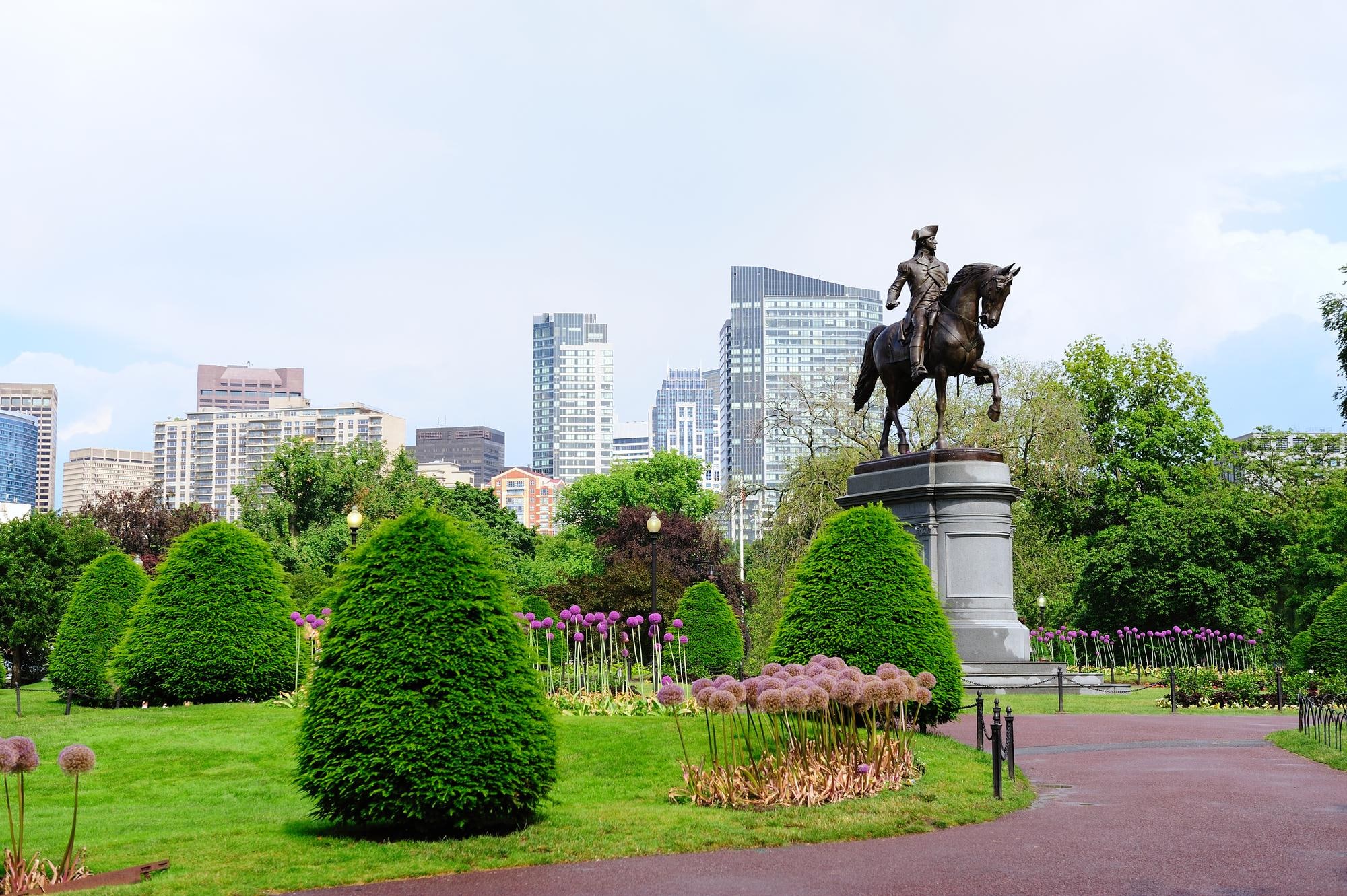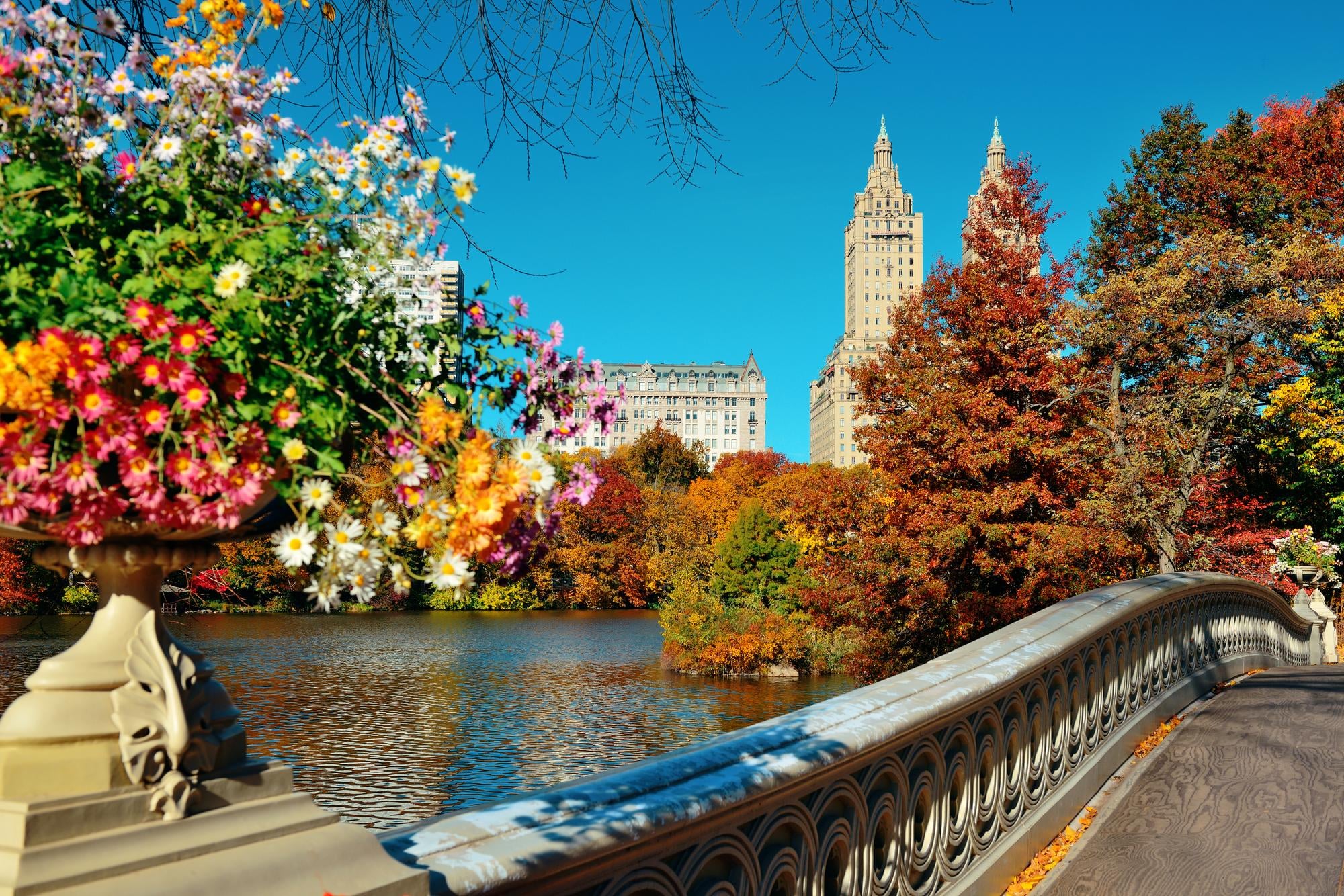(Updated September 29, 2024)
Planning a move to Boston, or contemplating the possibility? You’re in good company. Famous for its rich history and vibrant intellectual culture, Boston is home to world-renowned institutions like Harvard University and MIT and offers a charming mix of old-world architecture and a thriving tech scene. Plus with one of the largest public transit systems in America, navigating the city, nicknamed The Hub (as in “The Hub of the Universe”) is a breeze.
In this post, we break down what you need to know before moving to Boston. From getting a moving permit to preparing for the city’s icy winters, here’s what should be on your radar.
9 Things To Know Before Moving to Boston
The Puritans first settled in Boston in September of 1630, making it one of the oldest U.S. municipalities. That’s given the city nearly four centuries to evolve into the bustling metropolis that it is today. Whether you’re already searching for a Boston apartment or you’re just entertaining the idea of moving there, here are ten things you should be aware of.
1. Brace yourself for a high cost of living
Boston is steeped in culture, history, and intellectual prestige. While those are indisputably positive, they also contribute to the high cost of living in Boston. The city’s median rent is $2,378 for a one-bedroom apartment, a 1.8% increase from 2023. So you can expect to devote a large share of your budget to housing costs each month.
But these steep living costs aren’t just a Boston phenomenon — Massachusetts state has the second-highest cost of living in the U.S., just behind Hawaii. However, when you’re tallying the pros and cons of living in Boston, remember that the high cost of living comes with advantages like a killer job market, elite universities, and a robust public transit system.
2. Boston ranks among the safest big cities in America
Safety is one of the benefits of living in Boston. In a Gallup survey, Americans ranked Boston the second safest — just behind Dallas — in a list of 16 large U.S. cities. With a safety scale of 60.22 (which means that Boston is perceived as safer than approximately 60% of the cities surveyed in that Gallup study), it’s considered safer than New York, and residents report that they don’t typically worry about violent crime when walking in the city.
If you’re moving to Boston with safety on your mind, some of the safest neighborhoods in Boston include West Roxbury, Brookline, and Brighton.

3. Boston is a history buff’s paradise
Boston played a central role in the American Revolution, with the Siege of Boston signaling the war’s initial phase. If you’re a fan of history, the 2.5-mile Freedom Trail will take you past an impressive array of significant sites including:
The Paul Revere House, home of the famous patriot and the oldest house in Boston (and surprisingly tiny)
The Boston Latin School, the oldest public school in America and attended by Benjamin Franklin and Samuel Adams
The site of the Boston “Massacre,” the famous confrontation where British soldiers fired into a crowd, killing five colonists and serving as a catalyst for the Revolution
In addition to its famous historical landmarks, Boston offers a vibrant culture for history lovers with events throughout the year like:
Patriot's Day Celebrations, when the city commemorates the Battles of Lexington and Concord with reenactments, parades, and educational programs every April
Boston Harborfest, a week-long Fourth of July festival
Ongoing lectures and panel discussions on topics related to Boston’s rich history, sponsored by universities and historical societies
4. Boston’s heart beats for sports
Sports are a big deal in Boston, where passion and loyalty run deep among fans. The city is home to Fenway Park, famously known as “America’s most beloved ballpark,” and the Boston Red Sox, whose storied history includes beloved figures like David Ortiz (aka “Big Papi”) and Carl Yastremski as well as four World Series championships in the twenty-first century.
If you’re not a baseball fan, don’t worry. The city’s other home teams include the Boston Bruins (NHL), Boston Celtics (one of the most successful teams in NBA history), and the New England Patriots (which has won six Super Bowl titles since 2001).
Before heading to your first game after moving to Boston, make sure you’re prepared for the game-day crowds on the city’s metro.
5. Driving in Boston can require some getting used to
Boston is notorious for its stressful driving conditions. That’s why many residents prefer to use the T to get around (more on that soon). A number of factors contribute to Boston’s high-stress roads, including:
Traffic congestion: Many of Boston’s roads were built before cars, and it’s known for its difficult and winding street layouts. This can lead to heavy congestion, especially during the morning and evening rush hours.
Harsh winter conditions: Boston is famous for its icy winters, which can be incredibly rough on roadways. Not only that, the colder a city’s winters are, the more salt you can expect to encounter during your commute as the city tries to prevent streets from freezing over — and salt is corrosive to streets and cars alike.
No congestion pricing: When looking at the pros and cons of living in Boston, the lack of congestion pricing (a traffic management strategy used in urban areas to reduce traffic congestion by charging drivers a fee to use certain roads or zones during peak travel times) could fall in either category. It will allow you to navigate the city cheaply by car during peak hours, but don’t think you’ll be the only one with that idea. The cheap tolls are a financial benefit, but they also contribute to Boston’s packed roads.
Keep in mind that Boston’s fast-paced streets can make a DIY move especially difficult. Hiring professional movers who handle every aspect of your move can take some of the weight off your shoulders.
6. Luckily, the T makes getting around Boston a breeze
While navigating Boston's roads can be a challenge, many residents find relief in the city’s expansive public transit system. The Massachusetts Bay Transit Authority — affectionately known by Bostonians as the T — is among the nation’s largest public transit systems. Better yet, 100% of the electricity it uses is sustainably sourced, so you can support the environment while traveling around the city quickly and conveniently.
The MBTA has 153 stations, only 31 of which are underground. The T follows four lines, including:
The Red Line, a two-branched railway line providing easy access to Havard and the bustling Alewife area in Cambridge as well as to key stops like charming Ashmont, known for its historic New England–style homes and tight community feel, and Briantree, known for its good schools, family-friendly atmosphere, and affordable housing
The Orange Line, a vital artery that stretches from Oak Grove to Forest Hills and takes you through neighborhoods like suburban Malden in North Boston and central Roxbury, known for its rich African American heritage
The Green Line, which is famous for its historic streetcars and takes commuters through popular areas like Kenmore Square and the BU campus
The Blue Line, which connects the city to the waterfront and airport and is particularly useful for those heading to the historic sites in East Boston
Together, these four lines can get you all around Boston and even into surrounding areas in some cases. For many, this makes the T one of the biggest benefits of living in Boston.
7. Boston’s weather is a mixed bag
If you haven’t built out your winter wardrobe, you’ll need to rethink that if you’re moving to Boston. The city’s winters are long and cold, with an average temperature of less than 45°F from December 3 to March 14. It’s also been known to snow as late as April in Boston. In other words, you’ll need to do more than just throw on a sweatshirt if you want to be comfortable for the larger part of the year.
However, if you can brave the snow and ice for a few months, you’ll be rewarded with beautiful — if occasionally humid — summer days. And, of course, Boston is renowned for its gorgeous fall foliage.
For many people, spring or summer is the ideal time to move to Boston. Just know you can expect a slightly pricier move around the summer months.
8. It’s likely you’ll need a Boston moving permit
A moving permit can help your Boston moving day go more smoothly. While it’s not a requirement, a permit grants your moving truck a legal parking space on the day of your move. You can apply online for a Boston moving permit, but you should know that:
The base fee for a permit is $50, with additional fees for using metered spaces.
When you’re moving to Boston, a permit only covers your moving van, not your personal vehicle.
You need to make sure that the location you’ve selected is a legal parking spot, whether residential, commercial, or metered.
Especially if you’re looking at a long-distance move, you’ll want to do everything you can to simplify your moving day. A moving permit can help things go much more seamlessly. So can using a full-service mover, who will take care of all the logistics (including parking) for you.
9. September is Boston’s busiest moving season
If you’re moving to Boston soon, you should know that leases turn over on September 1, making it the city’s busiest moving day of the year. Finding an apartment that’s not on Boston’s traditional lease cycle — September 1 to August 31 — can be challenging, but it offers the prospect of a much quieter Boston moving day.
Keep in mind that:
There’s no law stating that leases must turn over on September 1, meaning you might be able to negotiate that date when moving to Boston.
Arranging to move in even a few days before or after September 1 can remove a lot of stress, especially if you’re moving with appliances.
Boston’s lease turnover date coincides with the time when many students are moving into their apartments for the semester, which can add to the chaos.
If you end up moving during the September rush, remember to start your moving day as early as you can.

Moving to Boston: FAQs
Below, we’ve answered some of the most common questions that people ask when wondering, “Should I move to Boston?”
Q: Is moving to Boston a good idea?
A: If you’re able to accommodate the city’s relatively high cost of living, moving to Boston can be an excellent decision. The city is known for its gorgeous historical architecture, robust job market, vibrant culture, top-tier institutions, expansive public transportation, and much more.
Q: What salary do you need to live in Boston?
A: As a single adult, you’ll need to earn about $124,966 annually in order to live comfortably in Boston. For families, the financial requirements increase significantly: Two people raising two children would need a combined annual income of $319,738 to maintain a similar standard of living.
Q: Is it cheaper to live in Boston or NYC?
A: It’s about 13.7% cheaper to live in Boston than in NYC before factoring in rent. While housing costs in Boston can still be high, other living expenses like groceries and transportation tend to make Boston a more affordable option for those seeking a balance between city life and cost.

Moving to Boston? Let the Pros Take Care of It
Moving to Boston can be incredibly exciting. It’s a gorgeous city packed with historical significance, old-world charm, and countless things to do and see. But the city’s fast pace also presents its fair share of challenges during a move. Hiring an expert moving team will help you reduce the stress of your new adventure.
At Colonial Van Lines, we offer a full-service cross-country moving experience that includes furniture disassembly and assembly, loading, transportation, unloading, and more. Get started with a free quote today.

